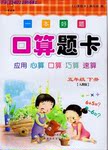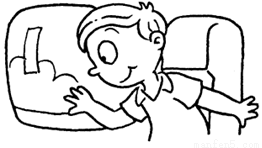题目内容
They left the office without ________ a word.
A. having saidB. sayingC. to sayD. said
 一本好题口算题卡系列答案
一本好题口算题卡系列答案
SIGN YOUR CHILD UP FOR "FLY TO THE MOON CLUB"
AND ENJOY A FREE * FLIGHT TO ANY DESTINATION IN ASIA!
With a registration fee of just $50 per child, children under the age of 12 can join Eagle Airways'FLY TO THE MOON CLUB as members. They can then enjoy the same benefits onboard Eagle Airways' newest Boeing-797 to any destination in the world!
BENEFITS YOU CAN'T MISS!
• A free flight to any destination in Asia
• 30% off any course at Tanya Language School
• 20% off any purchase made at Ruby Bookstore
• A free notebook with every purchase above $50 at Starlight Stationery
• A free bowl of dessert for a family of four at Don's Diner dinner ordered
• A birthday gift on your child's birthday
• A free album containing pictures taken during the journey
*All bookings made before 12 September will receive free travel insurance for the entire family! Insurance is issued by Live Life Insurance Group.
*10% OFF ALL BOOKINGS for departures from 5 to 11 September
* Child must be accompanied by two paying adults.
* Terms and conditions apply.

1.One of the benefits mentioned in the advertisement is ________.
A. a free flight to any destination in the world
B. 30% off any book purchased at Ruby Bookstore
C. a discount on any course at Tanya Language School.
D. a free bowl of dessert at any restaurant at the airport
2.Which of the following bookings may receive the most benefits?
A.
Booking date | Departure date |
September 13 | September 18 |
B.
Booking date | Departure date |
August 16 | September 8 |
C.
Booking date | Departure date |
August 15 | September 4 |
D.
Booking date | Departure date |
September 2 | September 12 |
3.Which of the following is TRUE according to the advertisement?
A. Any child must be accompanied by at least one paying adult.
B. Club members enjoy free travel insurance for any flight.
C. The advertisement is intended for students of all ages.
D. You need to pay $50 to sign up a child for the club.
4.What’s the purpose of this passage?
A. Introduce some information about "FLY TO THE MOON CLUB".
B. Attract children to become members of "FLY TO THE MOON CLUB".
C. Attract children to take a free flight to any destination in Asia.
D. Get a free travel insurance for the entire family.

